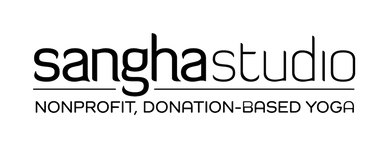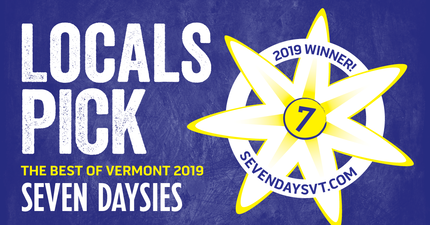Community agreements + Restorative Justice at SAngha
At Sangha, we practice individually and collectively the understanding that yoga is more than just asana; the physical practice. As a community, we commit to and stand by the ethical principles and guidance of the Yamas and the Niyamas as outlined below.
YAMAS
YAMAS
AHIMSA (non-violence):
Inclusivity:
We welcome all individuals regardless of economic status, identity, gender, body size, sexual orientation, race, health or fitness level. We strive to use inclusionary, non-stigmatizing language and refrain from perpetuating harmful rhetoric (ie: diet culture, ageism, gender binary, etc).
Respect:
Teachers
All staff will be respectful and mindful of transition time between classes and maintaining a clean and safe studio environment. We lead from the mindset that we are a team and we work collectively to support one another.
Students
All teachers and students will be respectful of each other, ensure consent is received in every interaction, and honor and support boundaries for ourselves and others.
All staff will be respectful and mindful of transition time between classes and maintaining a clean and safe studio environment. We lead from the mindset that we are a team and we work collectively to support one another.
Students
All teachers and students will be respectful of each other, ensure consent is received in every interaction, and honor and support boundaries for ourselves and others.
SATYA (truthfulness):
Communication:
Studio-wide changes and updates, including changes to policies, procedures, studio happenings, and ‘Trello’ will be communicated to teachers via the weekly teacher emails. Changes to individual or groups of teachers will be communicated individually; ie metrics, schedule changes, directly from studio administration.
In dialogue, all parties approach conversation with the willingness to listen while remaining open and respectful of the feedback being provided. We allow time and space for sufficient expression as well as the opportunity to take a break and return to conversation at another designated time.
In dialogue, all parties approach conversation with the willingness to listen while remaining open and respectful of the feedback being provided. We allow time and space for sufficient expression as well as the opportunity to take a break and return to conversation at another designated time.
Honesty:
We speak from a place of truth and compassion. When we notice our conduct is out of alignment, we compassionately refocus our attention on remaining in congruence with yogic principles while interacting within the studio space.
We humbly acknowledge that we are all continuously learning and evolving while attempting to do our best under current circumstances and with the information we have at the time. We understand the limitations of our own lived experiences and strive to listen, learn, and integrate information from individuals with various identities and experiences.
When possible, we allow ourselves and others the opportunity to clarify and reconcile situations when we stray from our values.
We humbly acknowledge that we are all continuously learning and evolving while attempting to do our best under current circumstances and with the information we have at the time. We understand the limitations of our own lived experiences and strive to listen, learn, and integrate information from individuals with various identities and experiences.
When possible, we allow ourselves and others the opportunity to clarify and reconcile situations when we stray from our values.
ASTEYA (non-stealing):
We value teacher’s and student’s time by starting and ending class on time as well as arriving and departing from the studio in a timely manner. These actions support class transitions and show respect for individuals’ commitments beyond attending/facilitating class.
Props and studio space are consciously cleaned and cared for. We return what we borrowed and leave the studio in better condition than when we arrived. We respect others’ personal belongings.
Props and studio space are consciously cleaned and cared for. We return what we borrowed and leave the studio in better condition than when we arrived. We respect others’ personal belongings.
BRAHMACHARYA (moderation/right use of energy):
We conscientiously utilize our energy both personally and collectively. Rest, vigor, or exploration along that spectrum are all welcome as it feels appropriate during class. Simultaneously, we acknowledge the impact of our actions and words and strive towards right use of that energy in a way that supports ourselves and the collective. Sangha facilitates an environment that encourages individual exploration of movement. That being said, we encourage students to use their best judgment when adjusting sequences or taking breaks. Group classes can inevitably lead to myriad distractions and, when possible, we do our best to minimize those distractions. For instance, if a student feels compelled to move in a manner that largely differs from what's offered in class, they are encouraged to set up in the back of the studio, attend class virtually, or use the accessible spaces in each studio.
APARIGRAHA (non-attachment):
Studio-wide
We acknowledge the challenge of operating under the confines of capitalism and strive to remain rooted in our core values and mission of offering accessible yoga while adequately compensating teachers and serving students. We value quality over quantity and continuously explore methods and protocols that would further support teachers and students. In our efforts to foster an equitable, sustainable, and inclusive environment, we understand that transitions may be uncomfortable or require those with more privilege to relegate opportunities to others.
Individually
We continuously work to release attachment to perfectionism, toxic positivity, spiritual bypassing and harmful ideals (including diet culture, racism, oppressive gender norms, ableism, ageism, healthism, etc).
We honor the role our egos play in keeping us safe and functioning, and we challenge our egos when feeling resourced enough to do so, particularly when we notice we are proliferating harmful narratives/behaviors. We understand that, as a society, we are indoctrinated into certain belief systems and hierarchical narratives without our consent and, through our yoga practice, we are willing to challenge those beliefs.
We acknowledge the challenge of operating under the confines of capitalism and strive to remain rooted in our core values and mission of offering accessible yoga while adequately compensating teachers and serving students. We value quality over quantity and continuously explore methods and protocols that would further support teachers and students. In our efforts to foster an equitable, sustainable, and inclusive environment, we understand that transitions may be uncomfortable or require those with more privilege to relegate opportunities to others.
Individually
We continuously work to release attachment to perfectionism, toxic positivity, spiritual bypassing and harmful ideals (including diet culture, racism, oppressive gender norms, ableism, ageism, healthism, etc).
We honor the role our egos play in keeping us safe and functioning, and we challenge our egos when feeling resourced enough to do so, particularly when we notice we are proliferating harmful narratives/behaviors. We understand that, as a society, we are indoctrinated into certain belief systems and hierarchical narratives without our consent and, through our yoga practice, we are willing to challenge those beliefs.
NIYAMAS:
SAUCHA (clarity/cleanliness):
When addressing relevant updates and studio changes, communication is clear, transparent, and efficient.
We collectively strive to keep the studio cleaned and cared for. We regularly clean and sanitize props as well as clean up beverages/belongings after and between classes.
We collectively strive to keep the studio cleaned and cared for. We regularly clean and sanitize props as well as clean up beverages/belongings after and between classes.
SANTOSHA (contentment):
We strive to extend our personal benefits of yoga out into our communities. We aim to facilitate and participate in classes that offer a sense of contentment–acknowledging that ‘contentment’ can show up within ease and well as challenge. We honor that individuals enter the studio space in differing emotional and physical states, and encourage students’ individual exploration of sensation.
We all strive to accept where we are in the moment, and to use that as our starting point.
We all strive to accept where we are in the moment, and to use that as our starting point.
TAPAS (self-discipline):
We acknowledge the societal pressure of hustle culture, grindset, and the pervasiveness of mind over matter. Students are encouraged to explore for themselves where they would like to implement more effort towards depth or ease while remaining as connected to their bodies and mind as they are able.
Teachers strive to facilitate classes that are physically safe while also acknowledging that each individual has different needs and limitations. Ultimately, we support conscientious individual exploration over rigid recommendations.
Structurally, we ensure physical safety within the studios through maintaining up to date fire code, max occupancy, first aid, and general building safety requirements.
Teachers strive to facilitate classes that are physically safe while also acknowledging that each individual has different needs and limitations. Ultimately, we support conscientious individual exploration over rigid recommendations.
Structurally, we ensure physical safety within the studios through maintaining up to date fire code, max occupancy, first aid, and general building safety requirements.
SVADHYAYA (self-study):
Continued Education:
Sangha strives to have informed and educated teachers in a variety of areas to better support students and teacher’s practices.
Sangha provides/offers/hosts continuing education including workshops to the community of teachers and students alike that are in alignment with the studios core values and areas of study teachers and students have been requesting.
Sangha provides/offers/hosts continuing education including workshops to the community of teachers and students alike that are in alignment with the studios core values and areas of study teachers and students have been requesting.
Self Reflection:
As teachers we strive for an awareness of how we take up space. We remain cognizant of how we could potentially be sharing that space with folks of differing levels of teaching experience, differing identities, social backgrounds, and class intersections.
All teachers and students honor what their unique body needs in terms of variations, pace, and rest, while remaining kind with themselves and others as they explore. We are aware that there can be many barriers to discerning needs in the body and encourage exploration to determine our needs while remaining safe in our bodies and respectful of those around us.
All teachers and students honor what their unique body needs in terms of variations, pace, and rest, while remaining kind with themselves and others as they explore. We are aware that there can be many barriers to discerning needs in the body and encourage exploration to determine our needs while remaining safe in our bodies and respectful of those around us.
ISHVARA PRANIDHANA (surrender/reflection on greater purpose):
Through behaving in congruence with yogic principles and the agreements outlined here, we trust that together, we are able to navigate change with grace while remaining committed to our greater mission - building a community for all through yoga + connection.
At any time, should anyone (teacher or student) feel there is a misalignment of the above agreements or repair needed from harm caused, we will follow the below framework:
Grievance Process/Restorative Justice:
All grievances will flow through the Williston Community Justice Center and work through the processes below:
Sangha recognizes that our community is a thriving, diverse group of folks and these agreements are not comprehensive, but rather meant to serve as a guide and resource for conversations on how we all impact each other’s lives - both positively and negatively - in shared, communal spaces. As a community with changing needs, we will work to revisit this document as needs arise and work towards making it a resource that works for all. Any changes made to the agreements will be shared widely with teachers and students alike!
- Any grievance within the Sangha community whether it be amongst students, teachers + students, admin staff and teachers, etc (all impacted parties) can be reported here.
- From there the center will determine the harm caused by reaching out to the impacted parties. From there, a few options may take place as determined by Cristalee and the center, including:
- A healing/circle of understanding to establish harm, accountability, outcomes to move forward.
- A restorative justice panel with the WCJC
Sangha recognizes that our community is a thriving, diverse group of folks and these agreements are not comprehensive, but rather meant to serve as a guide and resource for conversations on how we all impact each other’s lives - both positively and negatively - in shared, communal spaces. As a community with changing needs, we will work to revisit this document as needs arise and work towards making it a resource that works for all. Any changes made to the agreements will be shared widely with teachers and students alike!
Last updated: 12/8/23



